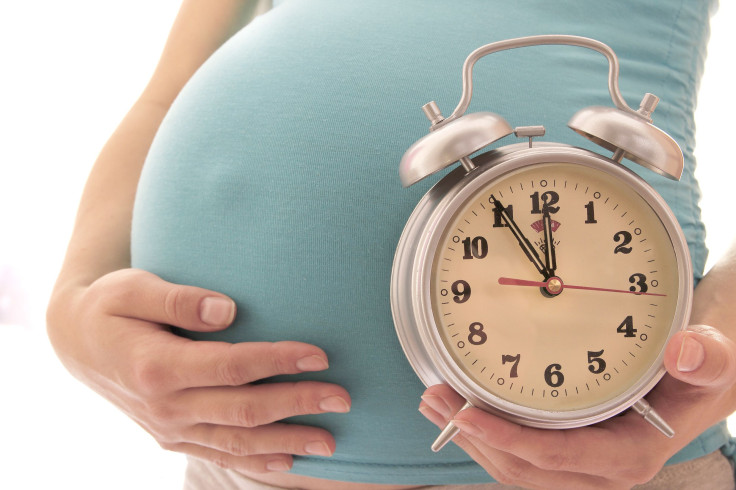Educated Women Most Likely To Induce Early Labor; But Aren't There Health Risks?

The United States is seeing a trend of mothers opting to have their babies delivered early, despite having no medical reason. Whether done via early induction or by Cesarean, many experts fear that delivering an infant before it has come to full term may have negative complications for both mother and baby. A new study has given us interesting insight into the profiles of mothers who chose to have early elective deliveries, and may help doctors to better address the problem.
For the first time ever, New University of Minnesota released information on who is having elective deliveries between 37 and 39 weeks gestation, before the infant is considered to be full-term. In most cases this type of delivery is reserved for mothers and babies with health problems. However, according to the new information, nearly four percent of U.S babies born before full-term have no medical reason to do so. “This may seem to be a small number, but with four million births a year in the U.S., each percentage point represents 40,000 babies," explained Katy Kozhimannil, lead researcher of the study, in a press release.
In order to best approach the situation, it’s important to understand the profile of mothers most likely to take this route during childbirth. According to the collected data, the chances of early elective induction were higher among white women, over the age of 35, who had attained a higher education, were privately insured, and gave birth at rural or nonteaching hospitals. Early elective Cesareans were more likely among black women, who were under the age of 20 or over the age of 35, had higher education, and gave birth at smaller-volume hospitals.
This study reflects America’s differing ideas on what is considered “full term.” It is a common belief that after 37 weeks, a child is considered to have reached full-term, but both the American College of Obstetricians and Gynecologists and the Society for Maternal-Fetal Medicine agree that it takes 39 weeks for a pregnancy to reach full-term. Kozhimannil hopes that the findings will help get the “importance of a full-term birth … to be communicated to all women, not just those who may traditionally be considered high risk for elective procedure or high risk poor outcomes,” she said in the release.
Early deliveries do come with the risk of health complications, which is why they are reserved for medical reasons. Infants born by C-section before full term are 60 percent more likely to stay longer in the hospital and more than twice as likely to have respiratory distress, when compared to infants born on or after 39 weeks. Elective early-term delivery can lead to prolonged labor, and increases the chances that instruments, such as forceps or vacuums, will be needed. These instruments may cause infection or hemorrhaging, according to the press release. “Morbidity and mortality rates have increased in mothers and their babies that are born in the early-term period compared to babies born at 39 weeks or later," said Jani Jensen, an author who worked on another study focusing on the issue.
Source: Kozhimannil KB, Macheras M, Lorch SA. Trends in childbirth before 39 weeks' gestation without medical indication. Medical Care. 2014.



























